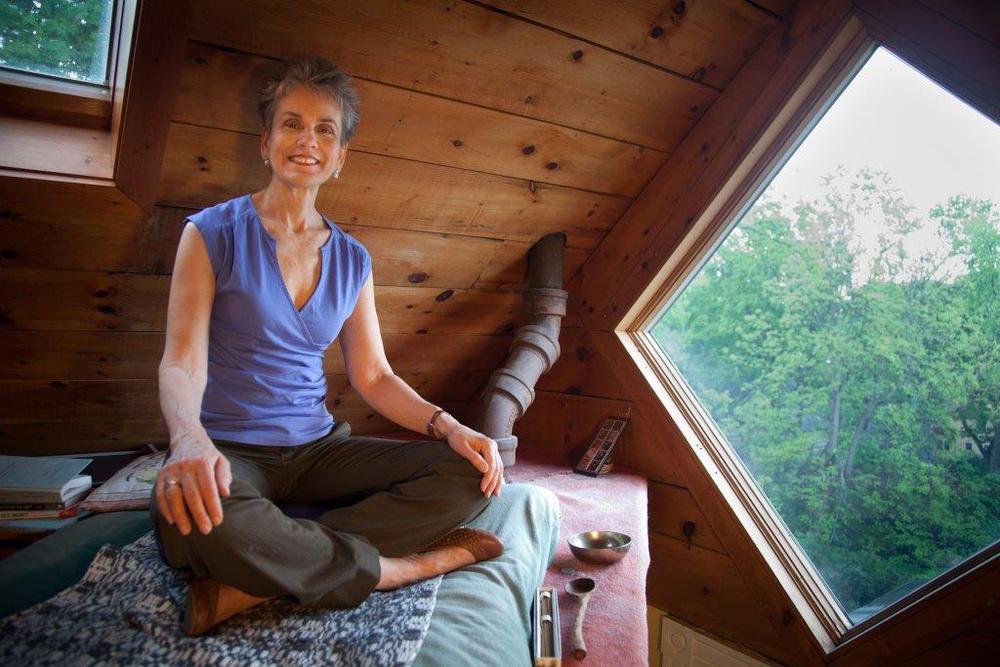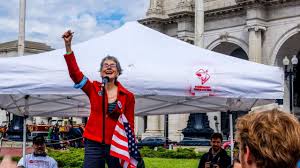 |
www.humanmedia.org
The Right Livelihood Award - also known as “the Alternative Nobel Prize” - is awarded to honorable individuals who put in their heart and soul into making the world a better place. Since UC Santa Cruz’s Kresge College is the only Right Livelihood College in the United States, the university serves as a resource to bring Right Livelihood laureates together and speak about their lifelong achievements. UC Santa Cruz was honored to have Frances Moore Lappe come speak.
|
 |
| static1.squarespace.com |
The evening started out when Frankie explained that she was neither a pessimist or an optimist; she is a possibilist. The ability to understand that there are always alternative solutions available (whether it comes to democracy or applying for jobs after college), opens a door of possibilities.
“We see the world through culturally formed filters,” said Frankie. We need to understand how valuable it is to appreciate our peers’ cross-cultural differences. By taking a moment to pause and think about why your colleagues see the world through a different lense, we can gain a different appreciation of the world and a culturally diverse mindset.
The “spiral of powerlessness...undermines democracy.” In Frankie’s book, Daring Democracy, we learn to understand that there is a blame and shame culture that shapes societal wealth distributions.
 |
| i.ytimg.com |
Frankie explained how her book Daring Democracy discusses eight strategies of highly effective billionaires. With a combination of manipulating the mindset and rigging the rules, one has the ability to become rich within a democratic political system.
Real Democracy:
In April 2016, Frankie told the audience about a democracy march she participated in that changed her life. “I didn’t think I could walk 10 miles and I walked over 100 miles.” At age 74 she experienced a “movement of movements.”
“There are quickening steps to real democracy —action in states, counties and cities,” spoke Frankie. When it comes to voters, we need to create clear elections, restore and expand voter rights (ex. Automatic voter registration), and ensure every voter carries equal weight. 10 states plus Washington D.C. are already using Automatic voter registration (AVR) to increase voting. Frankie discussed how need to encourage more states to utilize AVR to expand the voices of the American population in political decisions.
“Californians take their democracy seriously.” When it comes to deciding on commissioners to represent the various districts of California, any adult California with no conflict of interest in invited to apply for a position. California has a great way of interviewing prospective commissioner candidates through multiple stages and this technique allows randomization in candidate selection. This technique ensure equal and fair representation.
Step out of your comfort zone:
Participating in democracy can be a thrill. Stepping out to your comfort zone and taking a chance to bond with strangers (whether it is by attending City Council meetings to talking to people at the local coffee shop), will allow you to take the first step towards community action. Frankie explains how “Living Democracy ensures 3 essentials for human thriving: power (a sense of agency), meaning (beyond our own survival) and connection (to each other and the earth).”
 |
| gstatic.com |
“All my life I wanted to be part of a democracy movement” and now Frankie is getting the opportunity to live her dreams.
If you are interested in learning more about Frankie, you can check out her website Small Planet Institute. On the website you can learn more about her dreams she makes possible.
Also, we are honored to host Ms. Lappe and over a dozen more Laureates on May 15-18, 2018 for our Regional Conference of North American Right Livelihood Award Laureates. Visit http://kresge.ucsc.edu/commonground for details.


